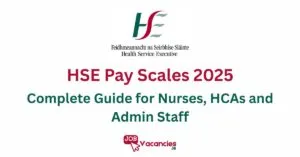Table of Contents
- Table of Contents
- Introduction
- The Irish Salary Landscape
- Economic Context
- Regional Variations
- Industry Variations
- Experience and Qualification Premiums
- Understanding Compensation Components
- Base Salary
- Bonuses and Variable Pay
- Benefits and Perks
- Equity and Share Options
- Additional Benefits
- Researching Salary Information
- Salary Surveys and Reports
- Online Resources
- Networking and Personal Connections
- Company-Specific Research
- Timing Your Negotiation
- During the Application Process
- During Interviews
- After Receiving an Offer
- For Current Employees
- Preparing for Negotiation
- Know Your Value
- Determine Your Numbers
- Anticipate Questions and Objections
- Practice Your Delivery
- Consider the Full Picture
- Effective Negotiation Strategies
- Focus on Value, Not Need
- Use Silence Strategically
- Negotiate the Complete Package
- Use Market Data Strategically
- Maintain a Collaborative Tone
- Get It in Writing
- Common Negotiation Mistakes
- Revealing Your Current Salary Too Early
- Accepting the First Offer Immediately
- Focusing Solely on Base Salary
- Making Ultimatums
- Apologizing for Negotiating
- Providing Personal Reasons for Salary Requests
- Neglecting Cultural Context
- Failing to Get Agreements in Writing
- Handling Counteroffers
- Evaluating the Employer’s Counteroffer
- Responding to a Counteroffer
- When the Employer Won’t Budge
- Counteroffers from Your Current Employer
- Negotiating Benefits and Perks
- Pension Contributions
- Health Insurance
- Annual Leave
- Flexible Working Arrangements
- Performance Bonuses
- Professional Development
- Other Valuable Benefits
- Tax Implications of Compensation
- Income Tax Basics
- Tax-Efficient Benefits
- Benefits Subject to Benefit-in-Kind (BIK) Taxation
- Special Scheme for Foreign Assignees
- Equity-Based Compensation
- Negotiation Implications
- Addressing the Gender Pay Gap
- Current State of the Gender Pay Gap in Ireland
- Factors Contributing to the Gap
- Negotiation Strategies for Women
- Organizational Initiatives
- International Context and Comparisons
- Ireland in the European Context
- Comparison with the UK
- Comparison with North America
- Multinational Variations
- Negotiating for Remote Work Arrangements
- Current Remote Work Landscape in Ireland
- Negotiation Strategies for Remote Work
- Compensation Considerations for Remote Work
- Formalizing Remote Arrangements
- Conclusion
- Related Posts
Salary Negotiation and Compensation in Ireland: A Complete Guide
Reading time: 12 minutes
Negotiating salary and understanding compensation packages are critical skills in today’s job market. This comprehensive guide explores the nuances of salary negotiation in Ireland, providing you with the knowledge, strategies, and confidence to secure a compensation package that reflects your true value.
Introduction
Salary negotiation is often viewed as one of the most challenging aspects of the job search process. Many candidates feel uncomfortable discussing money, worry about appearing greedy, or fear jeopardizing a job offer. However, effective negotiation is a crucial professional skill that can significantly impact your financial well-being and career trajectory.
In Ireland’s competitive job market, understanding how to advocate for your worth is particularly important. With a dynamic economy, strong presence of multinational corporations, and evolving workplace practices, the Irish employment landscape offers both opportunities and complexities when it comes to compensation.
This guide aims to demystify the salary negotiation process specifically within the Irish context. We’ll explore typical compensation structures, provide data-driven insights on salary ranges across industries, and offer practical strategies to help you navigate negotiations with confidence. Whether you’re a recent graduate, an experienced professional, or someone relocating to Ireland, this comprehensive resource will equip you with the knowledge and tools to secure a compensation package that reflects your true value.
Pro Tip:
Remember that negotiation is a normal and expected part of the hiring process. Most employers build some flexibility into their initial offers, anticipating that candidates will negotiate. By not negotiating, you might be leaving money on the table.
The Irish Salary Landscape
Understanding the broader context of salaries and compensation in Ireland provides essential background for effective negotiation. Several factors influence the Irish salary landscape:
Economic Context
Ireland has experienced significant economic growth in recent years, particularly in sectors like technology, pharmaceuticals, financial services, and professional services. This growth has generally exerted upward pressure on salaries, especially for in-demand skills.
However, it’s important to note that Ireland also has a high cost of living, particularly in Dublin and other urban centers. Housing costs, in particular, have risen substantially, making the real value of salaries an important consideration.
Regional Variations
Salaries in Ireland vary significantly by location:
- Dublin: Generally offers the highest salaries, reflecting the higher cost of living and concentration of multinational corporations and headquarters.
- Cork, Galway, Limerick: These regional cities typically offer salaries that are approximately 10-15% lower than Dublin for equivalent roles.
- Smaller towns and rural areas: May offer salaries 15-25% lower than Dublin, though this is often offset by significantly lower living costs.
Industry Variations
Salary levels vary substantially across industries:
- Technology: Generally offers the highest salaries, particularly for specialized roles in software development, data science, cybersecurity, and AI.
- Pharmaceutical and Medical Devices: Another high-paying sector, especially for roles requiring specialized scientific knowledge.
- Financial Services: Competitive salaries, particularly in areas like fintech, risk management, and compliance.
- Professional Services: Law, accounting, and consulting firms typically offer structured salary bands with clear progression.
- Public Sector: Generally offers more modest base salaries but may compensate with better job security, pension benefits, and work-life balance.
Experience and Qualification Premiums
The salary premium for experience and qualifications is significant in Ireland:
- Entry-level positions for graduates typically start at €25,000-€35,000, depending on the industry and qualification.
- Mid-level professionals with 5-10 years of experience can expect salaries ranging from €45,000-€80,000 in most sectors.
- Senior professionals and managers with 10+ years of experience typically earn €80,000-€120,000+, with significantly higher compensation possible for executive roles.
- Specialized technical skills or niche expertise can command substantial premiums above these ranges.
Important Note:
Salary transparency is not as common in Ireland as in some other countries. Many job postings do not include salary information, and discussing compensation with colleagues may be considered taboo in some workplaces. This makes independent research particularly important when preparing for negotiations.
Understanding Compensation Components
Total compensation in Ireland typically extends beyond just the base salary. Understanding all components of a compensation package is essential for effective negotiation and accurate comparison between offers:
Base Salary
This is the fixed amount paid to an employee, typically expressed as an annual figure before tax. Base salary is usually paid monthly in Ireland and is the foundation of most compensation packages.
Bonuses and Variable Pay
Several types of variable compensation are common in Ireland:
- Performance Bonuses: Linked to individual, team, or company performance, typically paid annually. These can range from 5-30% of base salary depending on the industry and seniority.
- Commission: Common in sales roles, typically structured as a percentage of sales value or achievement against targets.
- Profit Sharing: Some companies distribute a portion of profits to employees, often based on a predetermined formula.
- Signing Bonuses: One-time payments made when joining a company, more common for senior roles or positions requiring rare skills.
Benefits and Perks
Common benefits in Irish compensation packages include:
- Pension Contributions: Employers are now required to provide access to a pension scheme, with many offering matching contributions (typically 3-7% of salary).
- Health Insurance: Private health insurance is a common benefit, particularly in multinational corporations and larger Irish companies.
- Life and Disability Insurance: Often provided as part of a benefits package, particularly for more senior roles.
- Annual Leave: The statutory minimum is 20 days, but many employers offer 22-25 days, with additional days often granted based on service length.
- Sick Pay: Not statutorily required but commonly provided by employers for a specified period.
Equity and Share Options
Particularly common in technology companies and startups:
- Share Options: Rights to purchase company shares at a predetermined price after a vesting period.
- Restricted Stock Units (RSUs): Grants of company stock that vest over time, common in larger tech companies.
- Employee Share Purchase Plans: Programs allowing employees to purchase company shares at a discount.
Additional Benefits
Other components that may form part of a compensation package:
- Education Assistance: Support for further education, professional qualifications, or skills development.
- Relocation Assistance: Financial support for moving expenses, temporary accommodation, or immigration services.
- Transportation Benefits: Company cars, car allowances, bike-to-work schemes, or tax-saver commuter tickets.
- Wellness Programs: Gym memberships, health assessments, or wellbeing initiatives.
- Flexible Working Arrangements: Remote work options, flexible hours, or compressed work weeks.
Pro Tip:
When evaluating a job offer, calculate the total financial value of the entire package, not just the base salary. Some benefits (like pension contributions, health insurance, or company cars) have significant monetary value that should be factored into your comparison.
Researching Salary Information
Thorough research is the foundation of successful salary negotiation. In Ireland, gathering accurate and relevant salary information requires using multiple sources:
Salary Surveys and Reports
Several organizations publish regular salary guides specific to the Irish market:
- Recruitment Agencies: Major recruitment firms like Morgan McKinley, Hays, CPL, and Robert Walters publish annual salary guides covering various industries and roles.
- Industry Associations: Organizations like Technology Ireland, Ibec, and various professional bodies often publish salary data for their specific sectors.
- Government Sources: The Central Statistics Office (CSO) provides data on average earnings across different sectors and occupations.
Online Resources
Several online platforms provide salary information:
- Glassdoor: Offers employee-reported salary information for specific companies and roles in Ireland.
- LinkedIn Salary: Provides salary insights based on data from LinkedIn members.
- Payscale and Salary.com: Offer salary calculators that can be filtered for the Irish market.
- Indeed: Aggregates salary information from job postings and employee reports.
Networking and Personal Connections
Personal insights can be invaluable:
- Professional Networks: Discreetly discuss salary ranges with trusted contacts in your industry.
- Alumni Networks: University or college alumni working in your field can provide realistic salary expectations.
- Professional Associations: Members of industry groups may share salary information or provide mentoring.
- Recruiters: Specialist recruiters typically have excellent knowledge of current market rates for specific roles.
Company-Specific Research
Understanding the specific employer’s compensation practices:
- Company Reviews: Sites like Glassdoor include employee reviews that sometimes mention compensation practices.
- Annual Reports: For publicly traded companies, annual reports may provide insights into compensation philosophy and executive pay.
- News and Press Releases: Information about company performance, funding rounds, or expansion plans can indicate ability to pay.
- Current and Former Employees: If possible, connect with people who have worked at the company to understand their compensation approach.
Important Note:
When researching salaries, ensure you’re comparing like with like. Consider factors such as company size, location, required experience level, and specific responsibilities of the role. A “Marketing Manager” position, for example, can have vastly different compensation levels depending on these factors.
Timing Your Negotiation
The timing of salary discussions can significantly impact your negotiating position. Understanding when and how to broach the topic of compensation is a strategic consideration in the Irish job market:
During the Application Process
In Ireland, it’s generally best to avoid bringing up salary expectations too early:
- Job Applications: Unless specifically requested, it’s usually not necessary to mention salary expectations in your CV or cover letter.
- Initial Screening: If asked about salary expectations during an initial phone screening, you can politely deflect by saying you’d like to learn more about the role first, or provide a broad range based on your research.
During Interviews
As the interview process progresses:
- First Interview: If salary is raised, it’s often best to keep the discussion general, focusing on understanding if there’s a general alignment of expectations.
- Later Interviews: As you progress through the process and have a better understanding of the role’s responsibilities and challenges, you’ll be in a stronger position to discuss specific compensation.
- Final Stages: The most detailed salary negotiations typically occur after the employer has decided they want to hire you, but before a formal offer is made.
After Receiving an Offer
Once you have a formal offer:
- Initial Response: Express enthusiasm for the role and appreciation for the offer, but avoid accepting immediately if you plan to negotiate.
- Request Time: It’s perfectly acceptable to ask for a few days to consider the offer. This gives you time to evaluate it thoroughly and prepare your negotiation strategy.
- Counter-Offer: Present your counter-offer promptly, typically within 2-3 business days of receiving the initial offer.
For Current Employees
If you’re negotiating a raise in your current position:
- Performance Reviews: The most natural time to discuss salary increases is during scheduled performance reviews.
- After Significant Achievements: Following the successful completion of a major project or achievement of significant results can be an opportune time.
- When Taking on New Responsibilities: If your role has expanded significantly, this creates a natural opening to discuss compensation.
- Company Financial Cycles: Be aware of your company’s budgeting and financial cycles, as these often determine when salary decisions are made.
Pro Tip:
In Ireland, it’s generally advantageous to let the employer be the first to mention a specific salary figure. This prevents you from unintentionally anchoring too low. If pressed for a number early in the process, provide a range based on your research, and emphasize that your expectations are flexible depending on the total compensation package.
Preparing for Negotiation
Thorough preparation is crucial for successful salary negotiation. Before entering any compensation discussion in the Irish job market, take time to prepare in these key areas:
Know Your Value
Understand and be able to articulate your worth:
- Skills Assessment: Identify your key skills, particularly those that are in high demand or unique in the Irish market.
- Experience Evaluation: Quantify your experience in terms of years, projects completed, and results achieved.
- Qualifications: Consider how your education, certifications, and professional qualifications compare to typical requirements for the role.
- Achievement Inventory: Prepare specific examples of past achievements, ideally with quantifiable results (e.g., “increased sales by 20%” or “reduced costs by €50,000”).
Determine Your Numbers
Based on your research and personal circumstances, establish:
- Target Salary: Your ideal compensation based on your research and value.
- Acceptable Range: A range with your target as the lower-middle point, extending upward to an ambitious but justifiable figure.
- Walk-Away Point: The minimum compensation you would accept, considering all aspects of the role and package.
- Total Package Valuation: How you’ll value various benefits and perks in relation to base salary.
Anticipate Questions and Objections
Prepare for common challenges:
- “That’s outside our budget”: Consider how you might suggest restructuring the package or phasing in increases.
- “What’s your current salary?”: Prepare a response that redirects to the value you’ll bring rather than past compensation.
- “Why do you deserve this salary?”: Have clear, evidence-based points about your value and market rates.
- “We have many qualified candidates”: Be ready to highlight your unique strengths and fit for the specific role.
Practice Your Delivery
Rehearse how you’ll communicate:
- Confidence: Practice speaking confidently about your value and expectations.
- Tone: Aim for a collaborative, problem-solving tone rather than confrontational or apologetic.
- Key Phrases: Prepare specific phrases for different scenarios (e.g., “Based on my research and the value I’ll bring to this role…”).
- Role-Playing: If possible, practice with a friend or mentor who can provide feedback.
Consider the Full Picture
Prepare to evaluate and negotiate the complete package:
- Prioritize Components: Determine which aspects of compensation matter most to you (e.g., base salary, flexible working, pension contributions).
- Alternative Benefits: Consider non-monetary benefits that might be valuable to you if the base salary cannot be increased.
- Future Growth: Think about how the role might position you for future advancement and compensation increases.
Important Note:
In Ireland, it’s important to balance confidence with cultural sensitivity during negotiations. The Irish business culture generally values modesty and understatement, so an overly aggressive approach might be counterproductive. Aim for a confident but collaborative tone that emphasizes mutual benefit.
Effective Negotiation Strategies
Once you’ve done your research and preparation, these strategies can help you navigate the actual negotiation process effectively in the Irish context:
Focus on Value, Not Need
Frame your negotiation around the value you bring to the organization, not your personal financial needs:
- Value-Based Statements: “Based on my experience leading teams that have increased departmental efficiency by 25%, and the current market rates for professionals with my qualifications, I believe a salary of €X would reflect the value I’ll bring to this role.”
- Avoid Need-Based Arguments: Statements like “I need a higher salary because of my mortgage” or “Dublin is expensive” are not compelling negotiation points.
- Quantify Contributions: Where possible, express your potential contributions in terms of revenue generation, cost savings, or efficiency improvements.
Use Silence Strategically
The strategic use of silence can be powerful:
- After Stating Your Ask: Once you’ve stated your salary request, resist the urge to immediately fill silence with justifications or concessions.
- Processing Time: When presented with an offer, take a moment to consider it rather than responding immediately.
- Cultural Consideration: In Irish business culture, comfortable silence in conversation may be less common than in some other cultures, making this technique particularly effective when used judiciously.
Negotiate the Complete Package
Look beyond base salary to optimize the total value:
- Flexible Approach: “While I was hoping for a base salary of €X, I understand your constraints. Could we discuss enhancing other aspects of the package, such as performance bonuses or additional annual leave?”
- Creative Solutions: Consider options like sign-on bonuses, earlier performance reviews, education allowances, or flexible working arrangements.
- Future-Focused: If immediate increases aren’t possible, negotiate a clear timeline for future reviews and potential increases based on performance.
Use Market Data Strategically
Reference your research effectively:
- Specific References: “According to the Morgan McKinley 2024 Salary Guide for Ireland, the typical range for this role with my level of experience is €X to €Y.”
- Multiple Sources: Strengthen your position by citing multiple reputable sources that support your salary expectations.
- Industry-Specific: Focus on data most relevant to your specific industry, company size, and location in Ireland.
Maintain a Collaborative Tone
Approach the negotiation as a collaborative problem-solving exercise:
- Partnership Language: Use “we” and “together” to emphasize mutual benefit.
- Express Enthusiasm: Regularly reaffirm your interest in the role and organization.
- Acknowledge Constraints: Show understanding of any legitimate constraints the employer might face.
- Problem-Solving Approach: “I understand your budget constraints. How might we structure a package that works within those constraints while reflecting the value I’ll bring?”
Get It in Writing
Ensure all agreements are documented:
- Formal Offer Letter: Request that all aspects of the negotiated package be included in your formal offer letter.
- Performance-Based Increases: If you’ve agreed to future increases based on performance, ensure the metrics and timeline are clearly documented.
- Benefits and Perks: Confirm that all negotiated benefits are explicitly included in your contract or offer letter.
Pro Tip:
In Ireland, building rapport is particularly important in negotiations. Take time for some light conversation before diving into negotiations, and maintain a personable approach throughout. This cultural aspect of relationship-building can significantly impact negotiation outcomes.
Common Negotiation Mistakes
Even well-prepared candidates can undermine their position by making these common mistakes during salary negotiations in Ireland:
Revealing Your Current Salary Too Early
The Mistake: Disclosing your current salary before the employer has made an offer can anchor negotiations to your current compensation rather than your market value.
Better Approach: If asked about your current salary early in the process, politely redirect: “I’d prefer to focus on the value I can bring to this role and discuss compensation based on your budget for this position and the current market rates.”
Accepting the First Offer Immediately
The Mistake: Accepting an initial offer without negotiation, even when it seems reasonable, often leaves value on the table.
Better Approach: Express enthusiasm for the offer and ask for a short time to consider it. Use this time to evaluate all aspects of the package and prepare a thoughtful response.
Focusing Solely on Base Salary
The Mistake: Neglecting to consider and negotiate other valuable components of the compensation package.
Better Approach: Evaluate and negotiate the entire package, including benefits, bonuses, equity, working arrangements, and development opportunities.
Making Ultimatums
The Mistake: Using threatening language or presenting demands as ultimatums, which can create an adversarial dynamic.
Better Approach: Maintain a collaborative tone and frame your requests in terms of finding a mutually beneficial solution.
Apologizing for Negotiating
The Mistake: Beginning negotiations with apologies or expressions of discomfort, which can undermine your position.
Better Approach: Approach negotiation as a normal and expected part of the professional process, maintaining confidence in your right to advocate for fair compensation.
Providing Personal Reasons for Salary Requests
The Mistake: Justifying salary requests based on personal financial needs rather than professional value.
Better Approach: Base your negotiation on your professional value, market rates, and the specific contributions you’ll make to the organization.
Neglecting Cultural Context
The Mistake: Applying negotiation tactics that may work in other countries but clash with Irish business culture.
Better Approach: Adapt your approach to align with Irish cultural norms, which generally favor relationship-building, modesty, and indirect communication.
Failing to Get Agreements in Writing
The Mistake: Accepting verbal agreements without ensuring they are documented in your offer letter or contract.
Better Approach: Politely request that all aspects of your negotiated package be included in your formal offer letter or contract.
Important Note:
In Ireland, maintaining positive relationships throughout the negotiation process is particularly important. Even if you decide to decline an offer, do so graciously and professionally, as the Irish business community is relatively small and interconnected, particularly within specific industries.
Handling Counteroffers
Navigating counteroffers requires careful consideration and strategic response. Here’s how to handle this phase of negotiation effectively in the Irish context:
Evaluating the Employer’s Counteroffer
When the employer responds to your salary request with a counteroffer:
- Take Time: Don’t feel pressured to respond immediately. It’s reasonable to ask for 24-48 hours to consider their proposal.
- Analyze All Components: Evaluate the complete package, not just the base salary figure.
- Compare to Your Minimum: Assess whether the counteroffer meets or exceeds your predetermined minimum acceptable compensation.
- Consider Long-Term Value: Evaluate how the role and package might position you for future growth and advancement.
Responding to a Counteroffer
Strategies for responding effectively:
- Express Appreciation: Begin by thanking the employer for considering your request and presenting their counteroffer.
- Find Common Ground: Acknowledge aspects of the counteroffer that you find acceptable or appealing.
- Propose Alternatives: If the counteroffer doesn’t meet your expectations, suggest creative alternatives that might bridge the gap.
- Example Response: “Thank you for considering my request and for your counteroffer. I appreciate the proposed increase in base salary. I notice that the bonus structure remains unchanged. Would it be possible to discuss a performance-based bonus that would allow me to earn additional compensation based on achieving specific targets?”
When the Employer Won’t Budge
If the employer indicates they’ve reached their limit:
- Verify It’s Their Best Offer: “I understand there are constraints. Is this the best offer possible at this time?”
- Consider Non-Monetary Benefits: Explore flexible working, additional leave, professional development opportunities, or an earlier performance review.
- Discuss Future Increases: “While I understand you can’t offer a higher starting salary, could we agree to a performance review after six months with the potential for an increase based on specific achievements?”
- Make Your Decision: Based on your priorities and minimum requirements, decide whether to accept, continue negotiating, or decline the offer.
Counteroffers from Your Current Employer
If you receive a job offer and your current employer makes a counteroffer to retain you:
- Consider Motivations: Reflect on why your current employer is suddenly willing to offer more compensation. Has your value truly been reassessed, or is this a temporary measure to avoid disruption?
- Evaluate Beyond Salary: Consider whether the issues that led you to job search in the first place will be addressed.
- Statistics: Be aware that studies suggest a majority of employees who accept counteroffers from current employers still leave within a year.
- Professional Relationships: Consider how staying after receiving a counteroffer might affect your relationship with your manager and colleagues.
Pro Tip:
Throughout the counteroffer process, maintain a professional and positive tone, regardless of the outcome. In Ireland’s relatively small professional communities, maintaining good relationships is particularly important for your long-term career prospects.
Negotiating Benefits and Perks
Beyond base salary, benefits and perks can significantly enhance your overall compensation package. Here’s how to effectively negotiate these components in the Irish context:
Pension Contributions
With Ireland’s auto-enrollment pension scheme on the horizon, pension benefits are increasingly important:
- Employer Contribution Rate: Standard employer contributions typically range from 3-7%, but this can be negotiable, especially for senior roles.
- Negotiation Approach: “I notice your standard pension contribution is 4%. Would you consider increasing this to 6% as part of my overall package?”
- Value Assessment: Remember that increased employer pension contributions offer tax advantages compared to equivalent increases in gross salary.
Health Insurance
Private health insurance is a valuable benefit in Ireland:
- Coverage Level: Basic plans cover public hospitals, while comprehensive plans include private hospitals and additional services.
- Family Coverage: Consider negotiating coverage for family members if relevant to your situation.
- Negotiation Approach: “Does the health insurance package include coverage for private hospitals and specialists? If not, would you consider upgrading to a more comprehensive plan?”
Annual Leave
While the statutory minimum is 20 days, many employers offer more:
- Industry Standards: Many professional roles in Ireland offer 22-25 days as standard, with additional days often granted based on service length.
- Negotiation Approach: “I see your standard annual leave allowance is 22 days. Given my experience level, would you consider offering 25 days?”
- Service Recognition: If additional days based on service length is standard policy, you might negotiate to start at a higher tier based on relevant prior experience.
Flexible Working Arrangements
Post-pandemic, flexible working has become increasingly important:
- Remote Work: Negotiate specific work-from-home days or a hybrid arrangement.
- Flexible Hours: Consider arrangements like compressed work weeks, flexible start/finish times, or core hours with flexibility around them.
- Negotiation Approach: “Would it be possible to establish a hybrid working arrangement with 2-3 days in the office and the remainder remote?”
Performance Bonuses
Variable compensation can significantly enhance your package:
- Structure: Negotiate the percentage, performance metrics, and payment frequency.
- Guaranteed Minimum: For the first year, consider negotiating a guaranteed minimum bonus while you establish yourself in the role.
- Negotiation Approach: “I’m interested in tying more of my compensation to performance. Could we discuss increasing the potential bonus from 10% to 15% based on achieving specific targets?”
Professional Development
Investment in your skills development has long-term value:
- Education Allowance: Negotiate a specific annual budget for courses, conferences, or formal education.
- Professional Memberships: Request coverage of fees for relevant professional organizations.
- Certification Support: Negotiate time off and financial support for obtaining industry certifications.
- Negotiation Approach: “Would you consider including an annual professional development allowance of €2,000 to support continuous learning in this rapidly evolving field?”
Other Valuable Benefits
Consider these additional benefits that may be negotiable:
- Relocation Assistance: If relocating to Ireland or within the country, negotiate support for moving expenses.
- Transportation Benefits: Company car, car allowance, bike-to-work scheme, or tax-saver commuter tickets.
- Wellness Programs: Gym memberships, health assessments, or mental health support services.
- Equity or Share Options: Particularly relevant in startups and technology companies.
Important Note:
When negotiating benefits, be aware of their tax implications. Some benefits (like pension contributions) offer tax advantages, while others (like company cars) may have benefit-in-kind tax implications. Consider consulting with a tax advisor to understand the net value of different benefit options.
Tax Implications of Compensation
Understanding the tax implications of different compensation components is essential for evaluating offers and negotiating effectively in Ireland. Here’s what you need to know:
Income Tax Basics
Ireland has a progressive income tax system:
- Standard Rate: 20% on the first portion of income (€40,000 for single persons in 2024).
- Higher Rate: 40% on the portion of income above the standard rate cut-off point.
- USC (Universal Social Charge): An additional progressive tax ranging from 0.5% to 8% depending on income level.
- PRSI (Pay Related Social Insurance): Generally 4% for employees.
This means that increases in gross salary are subject to progressively higher effective tax rates as your income increases.
Tax-Efficient Benefits
Some benefits offer tax advantages compared to equivalent increases in salary:
- Pension Contributions: Employer contributions to approved pension schemes are not treated as taxable benefit-in-kind and are not subject to income tax, USC, or PRSI.
- Small Benefit Exemption: Employers can provide non-cash benefits up to €1,000 per year tax-free (e.g., gift vouchers).
- Travel Passes: Tax-saver commuter tickets provided by employers are exempt from benefit-in-kind taxation.
- Bike-to-Work Scheme: Allows tax-efficient purchase of bicycles and related equipment.
- Training and Education: Job-related training provided by employers is generally not considered a taxable benefit.
Benefits Subject to Benefit-in-Kind (BIK) Taxation
Some benefits are subject to benefit-in-kind taxation:
- Company Cars: Taxed based on the car’s original market value and annual business mileage.
- Health Insurance: When paid by employers, this is generally subject to BIK tax, though at a capped rate.
- Interest-Free or Low-Interest Loans: The difference between market interest rates and the rate charged is taxable.
- Accommodation: Housing provided by employers is generally taxable as BIK.
Special Scheme for Foreign Assignees
For those relocating to Ireland:
- Special Assignee Relief Programme (SARP): Provides income tax relief for certain individuals assigned to work in Ireland from abroad. Qualifying employees can claim relief from income tax on 30% of their employment income above €75,000.
- Foreign Earnings Deduction (FED): Available for employees who spend significant time working in certain specified countries outside Ireland.
Equity-Based Compensation
Different equity schemes have different tax treatments:
- Share Options: Generally taxed at the time of exercise on the difference between market value and option price, with additional capital gains tax possible when shares are sold.
- Restricted Stock Units (RSUs): Typically taxed as income when they vest.
- Approved Profit Sharing Schemes: Can offer tax advantages if structured according to Revenue requirements.
- Key Employee Engagement Programme (KEEP): A tax-advantaged share option scheme for employees of qualifying SMEs.
Negotiation Implications
Consider these tax implications when negotiating:
- Net Benefit Analysis: Calculate the after-tax value of different compensation components to make informed decisions.
- Salary vs. Benefits: At higher income levels, negotiating for tax-efficient benefits may be more valuable than equivalent gross salary increases.
- Relocation Benefits: If relocating to Ireland, explore whether you might qualify for SARP or other tax reliefs.
- Timing Considerations: For equity compensation, the timing of grants, vesting, and sales can have significant tax implications.
Important Note:
Tax laws and rates change regularly. This information is intended as a general guide only. For personalized advice on the tax implications of your compensation package, consult with a qualified tax advisor familiar with Irish tax law.
Addressing the Gender Pay Gap
The gender pay gap remains a significant issue in Ireland, with implications for salary negotiations. Understanding this context can help all candidates, particularly women, negotiate more effectively:
Current State of the Gender Pay Gap in Ireland
Key facts about the gender pay gap in Ireland:
- National Average: According to the Central Statistics Office, Ireland’s gender pay gap is approximately 11.3% as of recent measurements, meaning women earn on average 11.3% less than men.
- Sectoral Variations: The gap varies significantly across industries, with larger gaps typically found in finance, technology, and professional services.
- Reporting Requirements: The Gender Pay Gap Information Act 2021 now requires larger employers to report on their gender pay gaps, with reporting obligations being phased in based on company size.
Factors Contributing to the Gap
Understanding the causes can inform negotiation strategies:
- Initial Salary Negotiations: Research suggests women are less likely to negotiate starting salaries and may face different reactions when they do negotiate.
- Career Interruptions: Women are more likely to take career breaks for caregiving responsibilities, which can impact long-term earnings.
- Occupational Segregation: Women and men tend to be concentrated in different occupations and sectors, with female-dominated sectors often offering lower compensation.
- Unconscious Bias: Subtle biases in hiring, promotion, and compensation decisions can accumulate over time.
Negotiation Strategies for Women
Approaches to address potential negotiation disparities:
- Research Thoroughly: Gather comprehensive data on market rates for your specific role, industry, and location to provide objective benchmarks.
- Use Communal Language: Research suggests women may face less backlash when negotiation is framed in communal terms (e.g., “This would help our team succeed” alongside personal value).
- Seek Transparency: Where possible, ask about salary bands or ranges for the role to ensure your request is aligned with the organization’s structure.
- Mentorship and Sponsorship: Seek advice from mentors who have successfully navigated similar negotiations.
- Consider the Full Package: Negotiate beyond base salary to include benefits, flexible working arrangements, and professional development opportunities.
Organizational Initiatives
How employers are addressing the gender pay gap:
- Pay Transparency: Some organizations are implementing greater transparency around pay scales and bands.
- Structured Compensation: Formalized compensation frameworks with clear criteria for salary decisions can reduce the impact of bias.
- Regular Pay Audits: Systematic reviews of compensation across gender lines to identify and address disparities.
- Training for Managers: Education on unconscious bias and fair compensation practices for those making hiring and compensation decisions.
Pro Tip:
When researching salary information, look for gender-disaggregated data where possible to understand if there might be gender-based disparities in your field. This awareness can help you position your negotiation more effectively.
International Context and Comparisons
Understanding how compensation in Ireland compares internationally is particularly valuable for those relocating to Ireland or working for multinational organizations:
Ireland in the European Context
How Irish compensation compares to other European countries:
- Relative Position: Ireland generally offers higher gross salaries than most Southern and Eastern European countries, but lower than some Northern European countries like Denmark, Norway, and Switzerland.
- Cost of Living Adjustment: When adjusted for cost of living, Ireland’s position shifts somewhat, as housing costs in particular are high by European standards.
- Tax Considerations: Ireland’s income tax rates are moderate by European standards, but the entry point to the higher rate is relatively low, affecting net income comparisons.
Comparison with the UK
Given the close economic and cultural ties:
- Salary Levels: Salaries in Ireland are broadly comparable to the UK outside London, though Dublin salaries are typically lower than London equivalents.
- Benefits Differences: Ireland typically offers more annual leave (20 days minimum vs. UK’s 28 days including public holidays) but healthcare benefits differ significantly due to different healthcare systems.
- Post-Brexit Context: Ireland’s EU membership now creates distinct advantages for those seeking to work across the EU market.
Comparison with North America
For those coming from or comparing with US/Canadian markets:
- Base Salary: Base salaries in Ireland are typically lower than equivalent roles in major US tech hubs, but more comparable to Canadian and US non-coastal markets.
- Benefits Differences: Irish employment offers significantly more statutory benefits (annual leave, maternity/paternity leave, etc.) and stronger employment protections.
- Healthcare Context: The value of health insurance benefits differs significantly due to Ireland’s mixed public-private healthcare system versus the US employer-based system.
- Equity Compensation: Equity components are typically less generous in Ireland than in US tech companies, particularly for startups and growth-stage companies.
Multinational Variations
How compensation varies within multinational companies:
- Global Bands: Many multinationals use global compensation bands adjusted for local markets, creating some consistency across locations.
- Headquarters Premium: Roles at company headquarters often command higher compensation than equivalent roles in satellite offices.
- Expatriate Packages: Temporary assignments may include additional benefits like housing allowances, education for dependents, or cost of living adjustments.
- Global Mobility: Some organizations offer opportunities to relocate internationally while maintaining relative compensation positioning.
Important Note:
When comparing international compensation, consider the complete picture including taxes, benefits, cost of living, and quality of life factors. A seemingly lower gross salary may provide a higher standard of living when all factors are considered.
Negotiating for Remote Work Arrangements
The landscape of remote work has evolved significantly in Ireland, creating new considerations for compensation negotiations:
Current Remote Work Landscape in Ireland
Understanding the context:
- Post-Pandemic Shift: Many Irish employers have adopted hybrid working models, with varying degrees of flexibility.
- Right to Request: The Work Life Balance and Miscellaneous Provisions Act 2023 gives employees with children under 12 or caring responsibilities the right to request remote working arrangements.
- Industry Variations: Technology, professional services, and financial services tend to offer the most flexible arrangements, while customer-facing roles and manufacturing have more limited options.
- Geographic Considerations: Remote work has opened opportunities for living outside major urban centers while working for Dublin-based companies.
Negotiation Strategies for Remote Work
Approaches to secure favorable remote arrangements:
- Demonstrate Track Record: Highlight previous successful remote work experience and specific achievements while working remotely.
- Propose Clear Structure: Offer a detailed plan for communication, availability, and productivity measurement.
- Suggest Trial Period: Propose a trial period with specific success metrics to demonstrate effectiveness.
- Flexibility in Your Approach: Consider proposing a hybrid arrangement rather than fully remote if that aligns better with company culture.
Compensation Considerations for Remote Work
How remote arrangements may affect compensation:
- Location-Based Adjustments: Some employers adjust salaries based on employee location, potentially offering lower compensation for those living in lower-cost areas.
- Home Office Stipends: Negotiate allowances for home office equipment, furniture, or monthly stipends for internet and utilities.
- Tax Implications: Consider the tax implications of your work arrangement, particularly if working across international boundaries.
- Travel Expectations: Clarify expectations and compensation for occasional travel to the office, including frequency and expense coverage.
Formalizing Remote Arrangements
Ensuring clarity and protection:
- Written Agreement: Secure a formal written agreement detailing your remote work arrangement rather than relying on verbal agreements.
- Specific Terms: Ensure the agreement covers expected hours, communication protocols, equipment provision, and performance evaluation methods.
- Review Periods: Include regular review periods to assess the arrangement and make adjustments as needed.
- Reversibility Clauses: Be aware of any clauses that allow the employer to require a return to office-based work and under what circumstances.
Pro Tip:
When negotiating remote work arrangements, emphasize the business benefits such as increased productivity, reduced commuting time, better work-life balance leading to higher retention, and potentially reduced office space costs for the employer.
Conclusion
Effective salary negotiation is both an art and a science. In the Irish context, success requires thorough research, careful preparation, strategic timing, and confident delivery. By understanding the unique aspects of the Irish compensation landscape and applying the strategies outlined in this guide, you can significantly improve your negotiation outcomes.
Remember these key principles as you approach your next negotiation:
- Know Your Value: Base your negotiation on solid research about market rates and a clear understanding of the unique value you bring.
- Consider the Complete Package: Look beyond base salary to evaluate and negotiate the entire compensation package, including benefits, perks, and growth opportunities.
- Maintain a Collaborative Approach: Frame negotiation as a problem-solving exercise aimed at finding a mutually beneficial outcome.
- Be Prepared for Counteroffers: Anticipate responses and have strategies ready for various scenarios.
- Get Agreements in Writing: Ensure all negotiated elements are documented in your formal offer or contract.
The Irish employment landscape continues to evolve, with increasing flexibility in work arrangements, growing emphasis on equity and transparency, and ongoing adaptation to global economic trends. By staying informed about these changes and continuously developing your negotiation skills, you’ll be well-positioned to secure compensation that truly reflects your worth throughout your career in Ireland.
Remember that negotiation is a normal and expected part of the professional process. Approaching it with confidence, preparation, and respect for cultural context will help you achieve the best possible outcomes while building positive professional relationships.
Final Thought:
The most successful negotiations are those where both parties feel they’ve reached a fair agreement. By focusing on value creation rather than simply claiming value, you can achieve better outcomes and start your new role or continue your current one with a positive foundation.








